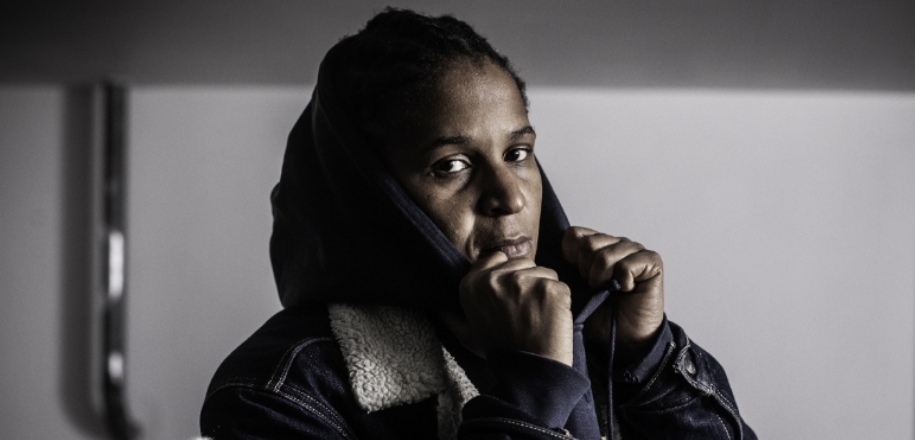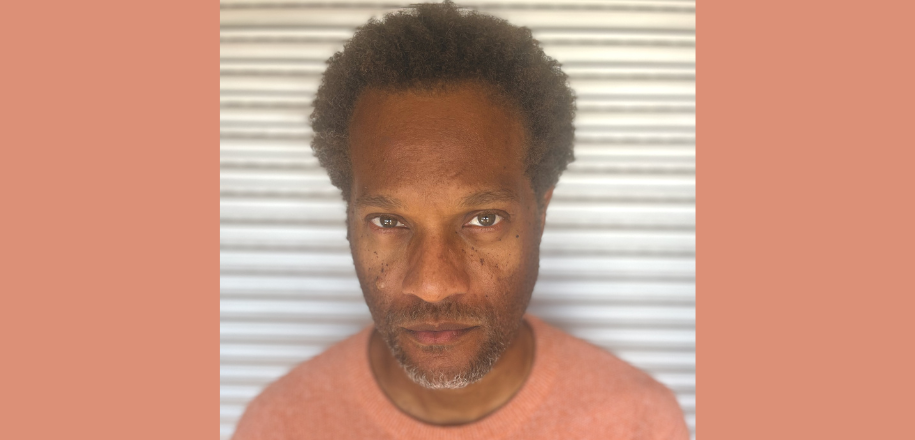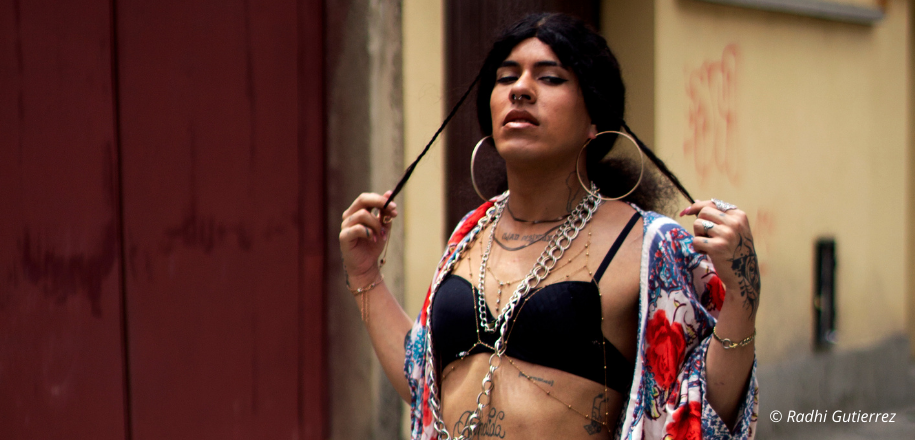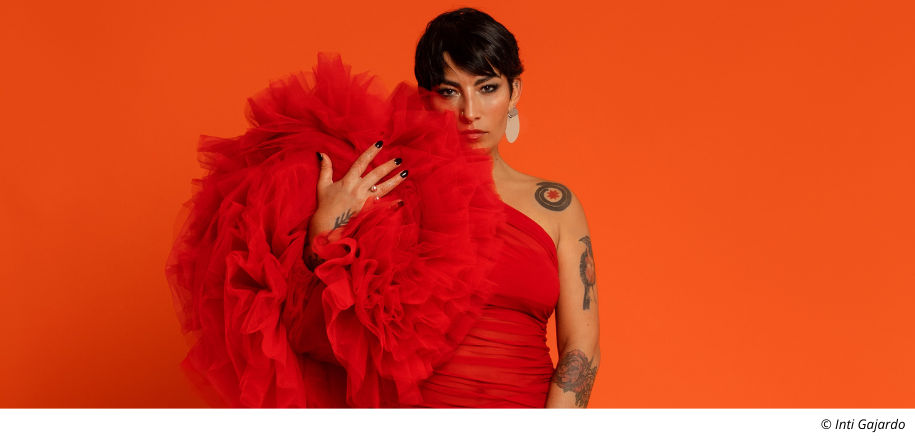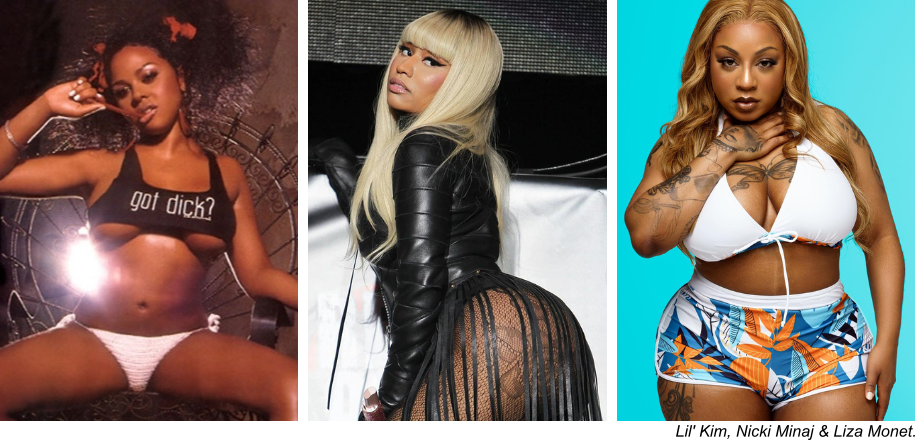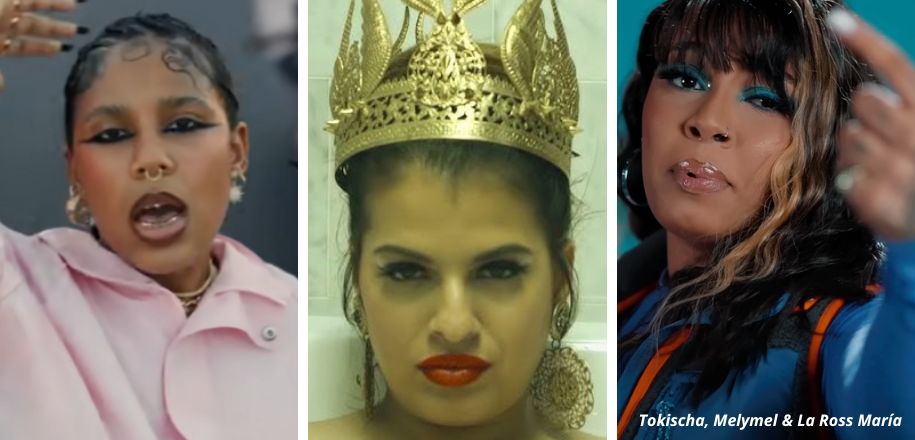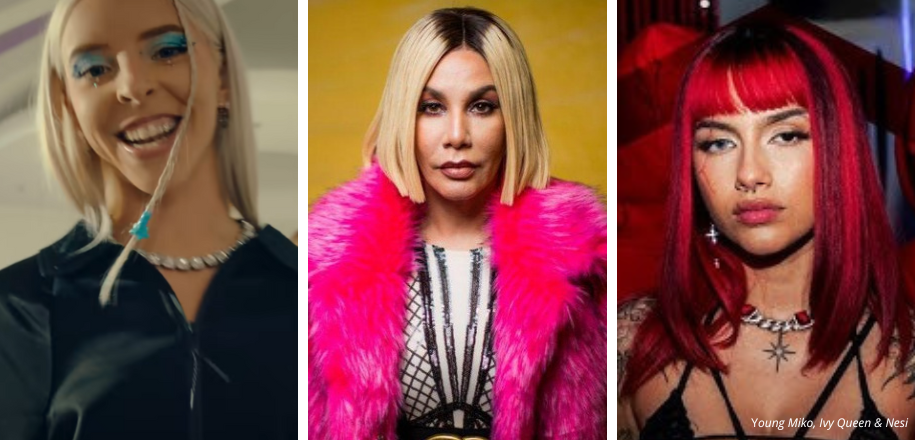Six years after her last album with Asocial Club, Casey explored feminist literature with David Bobée’s show “Viril” alongside Virginie Despentes and Béatrice Dalle. Today, the rapper is back with Ausgang, a project that blends rap and rock led with Marc Sens, Manusound, and Sonny Troupé. In this long interview, the artist from Blanc-Mesnil talks about their new album “Gangrène” (available March 6) and her relationship with rock and feminism.
You’ve already explored the links between rock and rap during your collaboration with Zone Libre. How is the Ausgang project different?
Even though Marc Sens is in both projects, they weren’t made with the same people, so it can only be different. And Zone Libre already existed, whereas this is a project we all put together
Why the name Ausgang ?
I was in Germany and I saw that. I liked the typography and the fact that it had “gang” in it. Group names are sometimes stupid! Then I learned it meant “exit” and I thought it was exactly what we needed.
From Spécial Homicide to Anfalsh, Zone Libre, Asocial Club, and now Ausgang, you’ve always worked collectively. What does it bring you more than solo work?
It exists, it holds up, and it balances out when it’s done with multiple people. I don’t find much interest in solo work. Anyway, total solo rarely exists. There are always people who help you make your music and I love collective stories.
Do your collaborations stem from friendly or artistic affinities?
A mix of both. When I hear someone’s work, I like to think that the truth of who they are is found in what they do. Even if I know I’m wrong and you can be a good worker and a total bastard.
In France, we haven’t seen many groups that mix rap and rock. Why do you think that is?
Because rock and rap are super divided in France. Rap is for the poor neighborhoods, non-Whites, and rock now is bourgeois and white. I feel like that’s the story France has told itself about rock because it’s different in Anglo-Saxon countries.
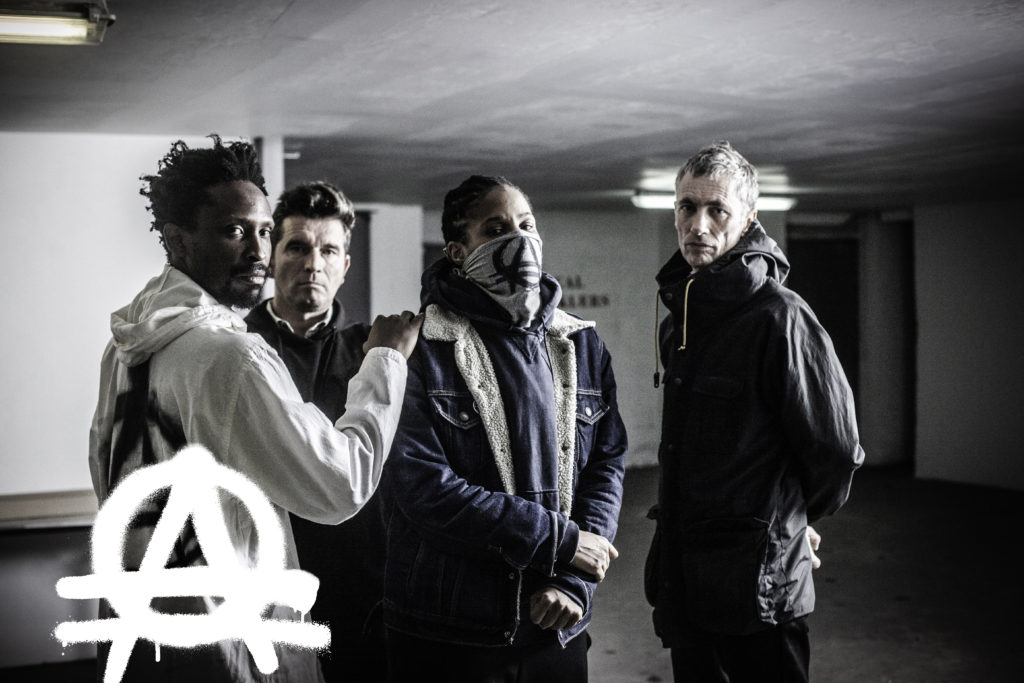
According to you, what are the bridges that exist between rap and rock?
The bridge is what people who break the divide allow themselves. In the 80s, punk groups like Bérurier Noir were proletarians who used rock to talk about their condition. But in France, we all knew rock on a variety side. It’s normal, it’s the baby boomer generation that carried this music. Those who were 15 or 20 in the 1960s. After that, there were other groups but I feel like rock disconnected from its popular origins in France. Whether it’s among those who listen to it or those who practice it.
Did you listen to Bérurier Noir or other punk rock groups?
I listened to them after because they’re not from my generation. Actually, my rock culture came through encounters. My parents are from the Antilles so at home I listened to Caribbean, African, and a bit of African-American music. My own culture went from FM radio to what was on TV. Even if I don’t have a big culture, what I immediately liked about rock is the hit, something you find in rap. It really showed me that it was the same energy. It yells, it screams, it twists your guts, that’s what rock is.
“Rap is really the one that takes all the heat.”
What’s a bit different in France compared to other Anglo-Saxon countries is that it doesn’t say much. Rock has become bourgeois and it was right to. Rap has also become bourgeois. But we often put rap on trial for becoming bourgeois and never rock. Rap is really the one that takes all the heat. It should have stayed barefoot, in flip-flops, without a penny, and there, it would have made the dominant class happy. They would have had the impression of listening to the music of suffering people. Those who put rap on trial are those who listen to rock, it’s the same caste. It’s class and race contempt actually.
That’s what you talk about in the song “Chuck Berry”, that rock is a story of cultural reappropriation…
Exactly. Rock has its roots in African-American history and in blues. It’s not about saying that rock is exclusively black since it also fed on country. But in France, when you’re black and you do rock, you feel like you’re not in your place.
There are very few black people in rock in France…
Already, there are few. And few black people listen to rock. This cultural reappropriation was done in such a way that people don’t even know that rock has black roots. Whereas in the United States, there’s the Afropunk festival in Brooklyn, in Botswana, there’s the Overthrust Winter Metal Festival. But in France, we’ve written a convenient story. That is to say that rap would be made mostly by non-Whites from the poor neighborhoods and rock would be bourgeois and white.
We always question rock about its musicality. We talk to artists about the groups that influenced them, their music, their style… But not a word about what they have to say.
“Subversion is thought, not attitude.”
Whereas with rap, it’s rather the opposite. We urge artists to have “engaged” lyrics and we never talk to them about their music…
Yes, we always put rap on trial for the text and the stupidity of the text. It’s as if there was a total absence of opinion in rock and it was exempt from it. Yet, I think that people who do rock and live in France belong to the social fabric and they might have something to say. But it’s not a question. On the other hand, we’ll ask them what they’re strung with, what brand their guitar is…
Yet, in their posture, we find all the stigmas of subversion and rebellion. While subversion is thought, not attitude. Sid Vicious, that was the 70s-80s. He was heavily drugged and he killed his girlfriend! In any case, he went to the end of the punk thing, namely self-destruction. At the limit, I have more respect for punk music because it advocated self-destruction and it self-destructed. Rock is those who take punk postures but who go to collect their check.
Do you think this way of treating rap stems from France’s colonial past?
France is a fucking colonial empire. It treats everything through the prism of its colonial imagination: with rappers, the text is always deficient, it’s always stupid or simplistic. Everything that is of the order of the culture of the dominant is the most validated culture. To find favor in their eyes, rap must be validated by them. Things only exist when a certain social and political class lays eyes on them. There, it has value.
“France treats everything through the prism of its colonial imagination.”
What’s interesting is that today in France rap is forty years old and in forty years, everyone has understood that it’s not very important to be validated by the dominant class.
Rock has completely melted and molded into that. Yet, subversion in rock would be very simple. Instead of giving the finger, it would just be trying to write a text about something that’s happening. It’s not much!
Is rap the new rock, in terms of messages and sales?
Yes and it has been for a long time! In rock, nothing is happening anymore. Nothing is happening so much that they sing in English. They prefer to do yogurt. For me, singing in English is being far from your mother tongue and doing chewing. It means you’ve erased speech. And if you’ve erased speech, it means you’ve erased thought. It amounts to a certain form of privilege to be exempted from thinking. You’re exempted because you know deep down that you’re not concerned.
Would you say that rap represents a political tool?
That’s a heavy responsibility. Rap has the right to its embourgeoisement and I strongly wish it because it has created jobs. But the most political aspect of rap is not its music, but the people who make it. Because any rapper, the most popular, who thinks and wants to protect himself by his success or his money, can end up in prison like everyone else. Which shows that it’s not about their social position, but it’s really about race.
Although rap is the music that sells the most, it remains despised. How is this paradox possible?
It’s class contempt and race contempt. France tells itself a story about its level in literature and the arts. It really encysts itself in mothballs, marble, debauchery, gilding. Everything contemporary is complicated in France. It seems that it always has to pass the test of age to be important. If it’s not 150 years old, if it’s not dead and buried and we haven’t made a statue of it on the Place de la Concorde, then it’s not interesting.
“Rap is the most interesting thing that happened in the last 40 years.”
Fortunately, with the internet and alternative paths, it’s possible today to dodge this kind of validation. France is always telling itself a story, that’s why it has trouble making the contemporary coexist with the old. Rap is the most interesting thing that happened in the last 40 years in France. There hasn’t been anything more innovative. It has allowed other voices, other modes of thought, other positions to emerge. But it’s difficult to recognize because it means that privileges have to be let go.
Like rock, doesn’t rap run the same risk of recovery and cultural reappropriation by the dominant?
It’s already the case, but your face remains your face. They’ll make money with you, but socially, you’re still as vulnerable. Prison is for you. Whereas normally, at a certain degree of wealth, you don’t go to prison. It has been demonstrated with politicians and entrepreneurs. There are rappers who are probably as rich as some corrupt politicians and who go to prison. The demonstration is made that the liberal dream is not for everyone.
There’s nothing victimizing in this. There are soccer players and rappers who go to prison, they are non-White and from poor neighborhoods and there are all sorts of corrupt people who never go to prison. Except Patrick Balkany! But even him, I think he went there because he’s part of the lower class of this caste.
“It’s reductive to say I’m a chick. I’m more of a hybrid thing.”
For more than twenty years, you’ve been expressing yourself on social violence and oppression relationships. For the first time, you raise the question of women with the video for “Chuck Berry”, where we only see black women in the image. Why did it take so long to address this subject?
Yes, I wanted there to be black women in the video. But on the subject itself, it’s complicated to answer because for me, it’s reductive if you tell me I’m a chick. I can’t tell you “yes I’m a chick”, it’s not totally true. I’m more of a hybrid thing. My social placement and my chromosomes classify me in this category and there’s no problem, but we know very well that gender is also a psychic position.
Even if feminism is not my activism, what interests me is how oppression relationships are established and privileges are perpetuated. The oppression relationships are the same for women as for other segments of the population. There are people who accumulate: if you’re a woman, black, poor, trans, there you accumulate. And what does a black, poor, trans, Muslim, disabled woman have to say to society? I think that as soon as she opens her mouth, she’s the one who has said it all.
As a “hybrid”, which pronouns do you identify with? Do you recognize yourself in the appellation “female rapper”?
Yes, no problem. When someone says “she” sometimes I think “it’s me” and sometimes I think “who are we talking about”! For me, it’s not about that. It’s how you position yourself that’s important. It’s not just your biological sex that presides over your personality. Everyone chooses how they determine themselves, but I’m not in a fight with pronouns.
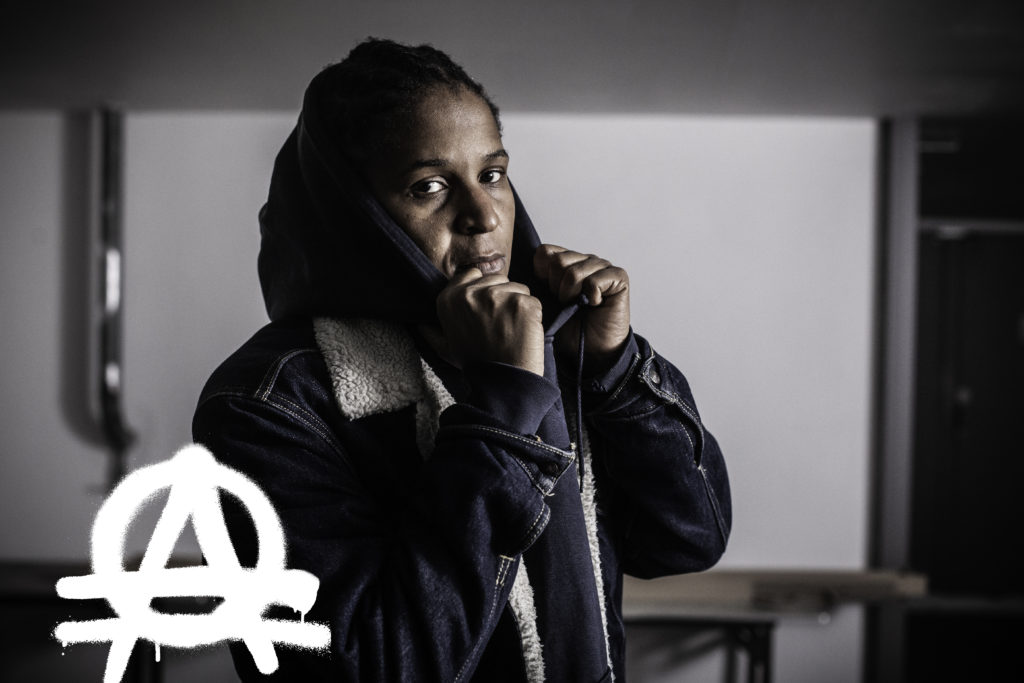
You say that feminism is not your field…
I’ve told more about oppression relationships through race and being black, because it’s more identifiable for me. Since I consider myself a hybrid, neither really as a woman, nor really as a man, but as an undefined thing and not to be defined, I never thought I had something to say about it.
Activism is being able to put a part of oneself on the forefront and make it a political subject. What I am belongs so much to my intimacy that I’ve never had anything to say about it publicly. On the other hand, talking about the experience of being black in a white world is something I’ve done quite naturally.
When I say that feminism is not my activism, it’s that there are people who talk about it more easily than me because they make it a political subject. What interests me is how you survive, you move forward, you manage yourself, you interact being dominated, even if it’s not the case all the time. And you, what do you take away from all this as material for thought? Do you dominate yourself afterwards? That’s what interests me and it opens me up to everything.
“The planet is female and yet women are socially in the minority.”
Being black and coming from the Antilles, that is to say from descendants of French slaves, immediately places you in what capitalism and the exploitation of human beings are. It forces you to think about it since you are the product of that. Even if you’re not a woman, it makes you wonder what it means to be the minority. This is what’s particular in the case of women because they represent 51% of the population. The planet is female and yet women are socially in the minority.
Are there still some inclusive currents or feminist figures – intersectional notably – with which you can identify?
Very honestly, I’m discovering all this in recent years. I’ve read things, I’ve met people. For example, I met Virginie Despentes, with whom I play in David Bobée’s show “Viril”, and who writes about this. I’ve discovered magnificent texts by poets that blow you away.
These are questions I’ve often been asked and I had nothing to say about them. It’s not that I haven’t thought about it, but I’ve always lived my life as if it wasn’t a question. After that, I see well what I project and I see well what I am, but things, either you talk about them, or you act them. Maybe I’ve acted them more than talked about them.
Why have you never “spoken” feminism?
Because for a very long time, where I grew up in my neighborhood, I was alone in being myself. Activism is done collectively. You meet people and they create a thought around a subject. Me, I’ve always been the anomaly of the corner. If I’ve thought about these questions, I’ve thought about them alone.
“When I discovered the word intersectionality, I thought: ‘that looks like me!'”
It’s really late that I discovered that people had written and positioned themselves on intersectionality for example. When I discovered this word, I thought “hey, intersectionality seems to be me!”. A crossroads with six ways that intersect and you’re in the middle. It’s weird, it’s as if it happened without me thinking about it.
As a female rapper, does asking the question of your place as a woman seem legitimate to you despite everything?
People have always come to bother me with female rap and I never really understood because I don’t care. I understand the question, but it’s a classification that doesn’t speak to me. There would be rap and female rap. Already, you see the condescension of the thing. It would be a particular category. While you know that you’re slapping people. But I’ve never been in the position of wanting to claim legitimacy, I have it. I’m not going to ask permission for anything from anyone.
It’s when people came to ask me to position myself or why I wasn’t positioning myself on certain subjects that I thought “it’s funny what people can expect from you.”
Honestly, there are places in society where there are so few public figures who take a stand in France that we sometimes think “please, go ahead!”
I know! And I understand the expectation and the thirst to name things. But at the same time, I find that there are plenty of people who do it. There’s naming, speaking or acting. Speech is an act. I acted by speaking. I exist. And it’s without conditions.
I think that’s what made me cross paths with people who had expectations. Sometimes, I even got scolded! It’s touching because it means that people feel a real proximity and think that you can carry a word. But as I was telling you, for me it’s very intimate and personal. When you make music, not everything is public. You choose what is and I’m a rather modest person.
So you’re a feminist? 🙂
Feminism would be wanting equality between men and women. It seems so obvious to me that I have nothing to say about it!
“Feminism is no longer the problem of chicks, but the problem of guys.”
I understand the expectations of feminism, but for me, it’s no longer the problem of chicks, it’s the problem of guys. It’s like racism, it’s no longer the problem of non-Whites. Black people have said everything, there’s nothing more to say! Feminism is the same. Women have said everything about their domination, they will say it again and it will be beautiful, it will be magnificent as black people created blues, gospel, jazz and said in all ways what they had to say. It’s beautiful to hear, it’s a word that pushes you and carries you, but it’s no longer the problem of the minority.
It’s been a long time since the minority no longer has to educate the dominant. They should be explained that it’s in their interest to get rid of their privileges to recreate a fairly healthy balance, in a world that is poisoned by these domination relationships. But what do men have to say about feminism? What are they going to let go? What is the man of the future? How are women and men going to raise the man of the future? And we’re starting to come across men of the future, those who have given up their privileges without feeling castrated, dispossessed, psychically and sexually impotent, who have managed to put their libido elsewhere than in the domination of women. That’s what’s going to change the game. As with racism, what changes the game is the White person of the future, the one who has let go of their privileges.
I know there are women who would want me to be feminist, but in truth, I’m going to disappoint everyone, I’m not feminist! I’m not feminist in the sense of the militant act of feminism. That is, speaking about it publicly and constantly, that’s not me. However, gender equality, yes, obviously!
You were born in Seine-Maritime to Martinican parents and started rapping in Seine-Saint-Denis. What connections do you maintain today with the cities of Rouen, Blanc-Mesnil and Fort-de-France?
Rouen is the birthplace so it remains mysterious. It’s the place where I took my first breath of oxygen, where I grew up and experienced things, it’s the place of childhood. I don’t go back much but it always does something to me.
“I feel more from the 93 than from France.”
Blanc-Mesnil is the 93 (93 is the colloquial reference to the department of Seine-Saint-Denis in the Paris Region. People say “quatre-vingt treize” – “ninety-three”- or “neuf-trois” “nine three”, ed.) . Me, I feel more from the 93 than from Paris or France. It’s as if the 93 was a bit my nation. Everywhere outside Paris, people hate Parisians. They don’t understand that we too, the people of the 93, consider them as Parisians “Paris intra-muros” who think they’re all that with their quinoa juice, we can’t stand them either! In the suburbs, this Parisianism, this cultural elite and this insularity are unbearable for everyone.
Blanc-Mesnil is also where Anfalsh was created. It’s where I took the mic. These are strong moments. It’s a department that I find powerful. It’s too much the future for me. It’s a breeding ground, which, without having said anything and without having politicized anything, has created something that rarely exists elsewhere. Just with the people and the forces present that interact willingly or unwillingly. Whether we like it or not, everyone is in contact and something is happening. You learn something from one or the other and it’s real. It creates a particular fusion.
I see the 93 changing with Greater Paris, gentrification and the real estate race. We’re letting entire sections of neighborhoods rot so we can buy them back at low prices. It’s funny to think that the place that was the most nightmarish in France is currently the most sought after! The new Parisians who arrive to buy lofts in the 93 come with all the impunity of what they are, that is to say having demands for themselves, as if nothing preceded them, or as if there were no problems to solve. They make scandals at the daycare, at school, it’s nonsense. As if the 93 was no longer the 93 just because they come to live there. Before, there was mixing and meeting but today there is no more meeting because that’s what they want to erase and what they’ve feared all their life. This department is one of the poorest in France, with the highest number of police violence, but they have nothing to say about that.
“The Antilles is the history of slavery. And even if I wasn’t told about it, it’s everywhere, all the time.”
Fort-de-France, I have family there and I go back at least once a year. The Antilles, it’s strong, it’s History. The history of slavery. And even if I wasn’t told about it, it’s everywhere, all the time, in the air, in certain Creole expressions, on people’s faces, in the food.
In recent years, with the chlordecone scandal, it’s really getting tense. It’s the health scandal of the century, beyond contaminated blood. We realize that for economic imperatives, we’ve almost poisoned an entire population. Apparently, it’s in the Antilles that there would be the most prostate cancers per capita worldwide. So, it created a kind of electroshock and pointed out the responsibility of the Békés since they’re the ones who own the sugarcane fields and banana fields. The irony is that it may have poisoned them too.
All this has also initiated an awakening in people. I find that young people are positioning themselves even more in recent years. With a resurgence of the independence flag, a public speech on slavery in the Antilles and from the Antilles, which is not always obvious.
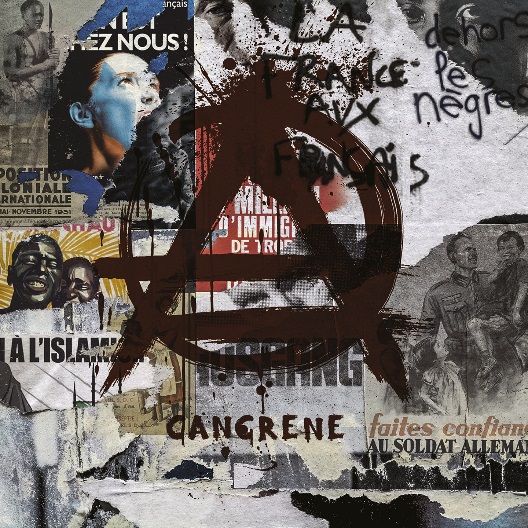
What are your upcoming projects with Ausgang and solo?
We’re on tour with Ausgang. In parallel, I’ve resumed my record, which I had interrupted for a while. After the tour, I’m going to release my album.
What do you think of Madame Rap? What should be changed or improved?
I think rather well of it. What to change? I don’t know. Every time I’ve been on your site, I’ve found it cool. Keep on your path. It’s important that there are spaces like this. Even if I never thought there needed to be a media that talks about rap for women, I know it’s a necessary place. There need to be protected spaces where speech can be expressed freely.
“I understood that it was the big carrot to cry for equality, and therefore, somewhere, for erasure.”
If you had told me that twenty years ago, I would have thought it was a scandal! I hadn’t understood how much this facade of equality doesn’t exist because it’s always to the benefit of the masculine by default. I’m a little less stupid now! I’ve understood well that it was the big carrot to cry for equality, and therefore, somewhere, for erasure. Basically, “don’t do, don’t name things”. We do the same thing with the question of race. But by default if you don’t name non-Whites, in France, everything is white, and if you don’t name women, everything is masculine. So do and continue, it’s very good!

